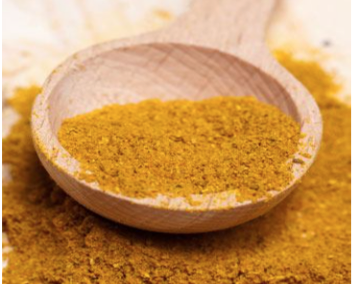In Addition
Vol 4 Izdaja 1
January/February 2013
Sai Vibrionics offers health information and articles for educational purposes only; this information is not meant as medical advice.
Counsel your patients to see their medical doctor about their specific medical condition.
EIGHT WARNING SIGNS OF HEART ATTACK
Here are eight signs that can be taken as warning and could help avert a catastrophic situation:
1. Discomfort in the Chest
The most common warning sign of a heart attack is the feeling of discomfort or heaviness in the chest that is new, severe, unexpected, and occurs with shortness of breath, sweating, nausea, or weakness. This feeling could also be more of a burning sensation. Chest pain or discomfort during activity that is relieved with rest. Any of these symptoms should not be taken lightly especially if you have heart disease. If it occurs, you need to rush to your medical doctor or the nearest hospital. If another person is complaining of the problem don’t take chances. Rush them to the nearest doctor or hospital immediately for a check-up.
2. Shortness of Breath
If your breathing gets heavy and the breath falls short even after a short walk, climb or other form of movement or exercise, it should be a huge cause of worry. Shortness of breath NOT relieved by rest. Even if this condition is not accompanied with chest discomfort, it should be taken as a warning sign. Fast heart rate (more than 150 beats a minute) – especially if there is shortness of breath, too.
3. Sweating
While sweating is inevitable in the scorching heat of summer, excessive sweating even in cool conditions is uncalled for. If you notice such sweating, consult a medical professional immediately.
4. Nausea
Regularly feeling nauseous or dizzy could imply the onset of a heart attack. Do not treat it callously as a sign of tiredness. This could happen due to the artery getting blocked. It could also display itself via excessive stress, fatigue after short spans of movement or exercise, or a feeling of weakness despite eating and sleeping well.
5. Numbness in Arms
Sudden weakness or paralysis (inability to move) in the arms or legs. If your arms feel numb and seem to be drifting to the sides, heart problem may be the cause.
6. Headache or Fainting Spell
Sudden, severe headache or constant dizziness or light-headedness, restlessness and/or sudden confusion are other potential signs. When caring for a person with heart disease, if there is a fainting spell with loss of consciousness, get help immediately.
7. Unresponsiveness
If certain parts of your body begin to stop responding, do not ignore the circumstance. The affected parts may be the shoulders, arms or back of the neck.
8. Slurring while Speaking
Difficulty while speaking need not necessarily occur after a bout of drinking with the buddies. It could be a graver situation than that! Inability to speak coherently could be the sign of a great attack. If you think you are suffering this ask a friend or relative to help by asking them to understand what you are saying.
A heart attack can be avoided if the warning signs are read correctly and in time. Seek medical aid immediately if one or more of the above symptoms are noticed. They could be the result of a choked artery. Even if heart attack is not the result, a check-up should definitely not be avoided! Take care!
The 7 Risks of Heart Attack and Stroke are Watching TV, Snoring, Gum Disease, Psoriasis, Migraines, Vitamin D Deficiency, Pregnancy Complications. To learn more about these risks, go to:
http://health.yahoo.net/experts/dayinhealth/7-hidden-heart-attack-stroke-risks
For information about heart disease, check out the US Centre for Disease Control:
http://www.cdc.gov/heartdisease/faqs.htm
Sources: WebMD.com and CDC.gov, Swanson Research Update
Health Benefits of Turmeric

Turmeric (Curcuma longa) is a yellow spice widely used in Southeast Asia. It originates from India and has been used as both medicine and food for centuries. This relative of ginger is one of the main ingredients of curry powder. The active medicinal ingredient in turmeric is called curcumin, the natural pigment that gives turmeric its yellow colour.
Curcumin has increasingly come under the scientific spotlight in recent years, with studies conducted in the world's leading universities, investigating its potential health benefits. Accumulating evidence suggests that curcumin is a promising preventive agent for a wide range of diseases. Here are some of these findings:
Turmeric and Cancer
Studies have been conducted on the turmeric and cancer connection. They reveal that turmeric can induce a process that triggers the self-destruction of cancerous and damaged body cells. Given its antibacterial properties, turmeric is beneficial in treating many types of cancer, most noticeably breast cancer, colon cancer, lung cancer and leukaemia.
Rodent studies at the University of Texas indicate that curcumin inhibits the growth of a skin cancer, melanoma and also slows the spread of breast cancer into the lungs. Researchers from the University of South Dakota have found that pre-treatment with curcumin makes cancer cells more vulnerable to chemo and radiotherapy.
Turmeric and Liver Function
The liver helps by detoxifying your blood through the production of enzymes. These enzymes break down and eliminate the toxins found in your body. Taking a turmeric supplement or using turmeric recipes increase the production of these vital enzymes, thus increasing liver function. Curcumin also seems to delay liver damage that can eventually lead to cirrhosis, according to preliminary experimental research at the Medical University Graz in Austria.
Turmeric For Arthritis
Due to turmeric’s anti-oxidant and anti-inflammatory properties, turmeric health benefits provide relief to those suffering from moderate to mild joint pains. Arthritis patients using turmeric for arthritis were found to benefit from reduced morning and evening joint pains. It has now become a natural remedy for arthritis sufferers and provides significant pain relief while also increasing walking speed for patients.
Turmeric and Wounds
As an anti-bacterial and anti-inflammatory agent, turmeric works to heal wounds, cuts and other skin injuries. Using a saucepan, boil coconut oil and add a small amount of turmeric to it. Mix the two together, turn the stove off. When it is no longer too hot to touch, use a cotton swab to apply some of the mixture to the wound. Saving the extra oil in an airtight container allows you to use it in the future without needing to go through the boiling process again.
Turmeric and Alzheimer’s
Brain inflation is suspected to be one of the leading causes of Alzheimer’s disease. Studies done with turmeric have shown that one of the major turmeric health benefits is helping to prevent Alzheimer’s disease. Turmeric anti-oxidant and anti-inflammatory properties might help to prevent or delay the onset of this ruthless disease. It is believed that turmeric blocks the production of IL-2 protein, which is known to destroy the protective sheath found around the nerves.
Epidemiologists have hypothesized that turmeric, as part of daily curries eaten in India, may help explain the low rate of Alzheimer's disease in that country. Among people aged 70 to 79, the rate is less than one-quarter that of the United States.
Turmeric and Cardiovascular Disease
Unhealthy cholesterol levels are the primary cause of most cardiovascular disease. When cholesterol oxidizes, it builds up on the walls of body cells. Turmeric contains vitamin B6, which regulates homo- cysteine levels. Homo-cysteine is directly responsible for damaging body cells. Through interaction with the liver, turmeric lowers the cholesterol levels in the body, which aides in preventing most cardiovascular diseases.
Daily supplements of curcumin may benefit cardiovascular health to the same extent as exercise for postmenopausal women, says new data from a clinical trial conducted in Japan. Vascular health, as measured by flow-mediated dilation (FMD), improved equally in groups of women receiving the curcumin supplements and those receiving aerobic exercise training, according to findings published in the journal Nutrition Research.
The National Institute of Health USA, lists 24 current studies on the effects of turmeric and its chief active component, curcumin. Such studies raise the question: Which is better to take: whole turmeric, generally used as a powdered spice with food; or curcumin, which is usually taken as a supplement? According to Dr Andrew Weil, “Each has been shown to have health benefits but unless you have a specific condition such as inflammatory bowel disease, I favour using turmeric (especially in cooking) rather than taking curcumin pills. This reflects my general belief that, until proven otherwise in head to head studies, a whole plant is usually a better choice than isolates of a plant. On the other hand, curcumin appears to have a more rapid and dramatic effect, and may be the better choice as a therapeutic (rather than a preventative) preparation.”
Sources: http://www.huffingtonpost.com/andrew-weil-md/turmeric-health-have-a-happy-new-year_b_798328.html
http://nccam.nih.gov
http://feelgoodtime.net/what-are-benefits-and-side-effects-of-curcumin-kurkumin-curcumin-for-cancer-and-dosage/
http://turmerichealthbenefits.org/
http://www.nutraingredients-usa.com/Research/Curcumin-may-match-exercise-for-heart-health-benefits-RCT-data http://neovitin.com/curcumin.aspx
Om Sai Ram
